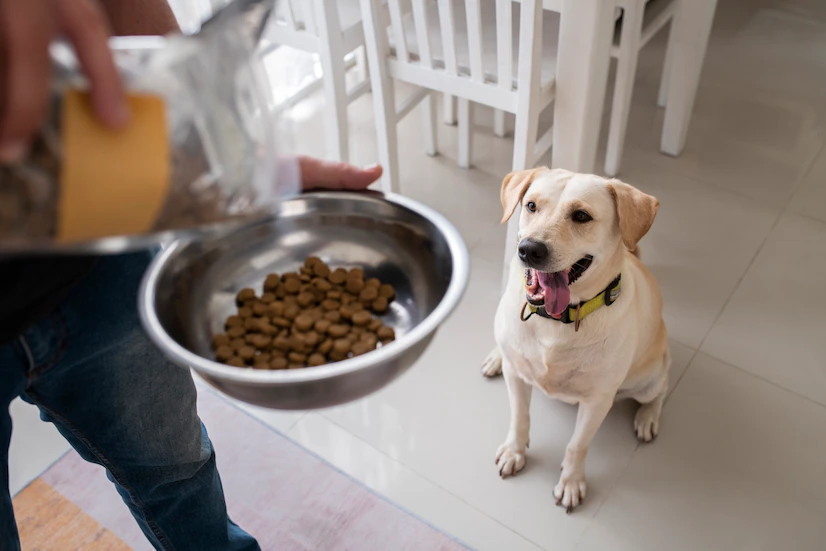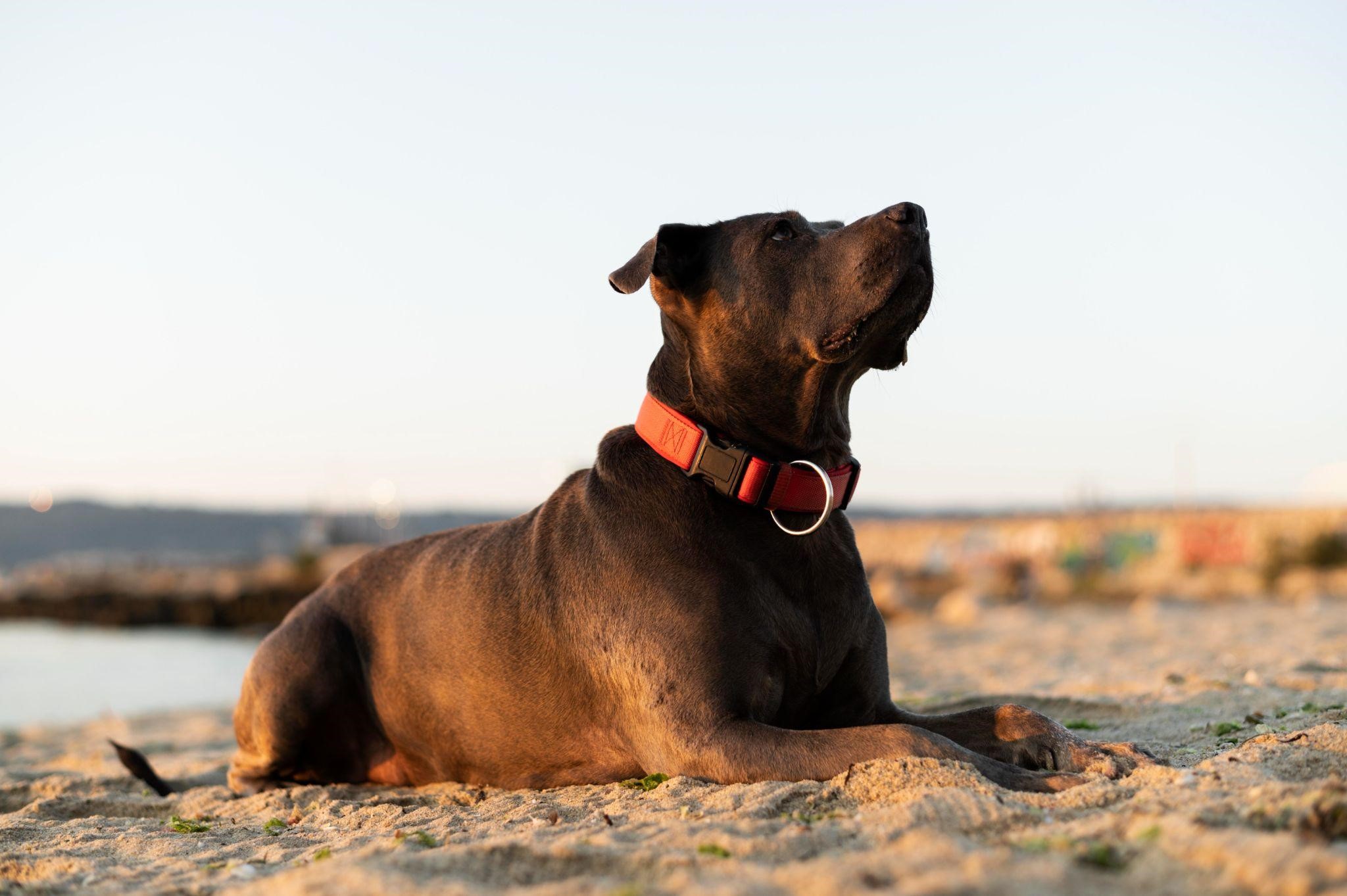Nutrition Or Risk? Understanding The Pros And Cons Of Feeding Dogs Peanuts

Why do dogs love peanuts so much? It’s hard not to be tempted into giving your pup a few of these snacks when they beg for them. But it is important to consider the pros and cons of feeding dogs peanuts before doing so, as there are health risks associated with feeding this snack to your furry friend.
In this blog post, we’ll discuss what the research says and dive deeper into nutrition or risk — understanding the potential benefits or dangers of feeding dogs with peanuts. By informing ourselves on both sides of the issue, we can make an educated decision that keeps our pups safe and happy!
The Nutritional Benefits Of Peanuts For Dogs
As a dog owner, you want to ensure your furry friend gets all the necessary nutrients to maintain good health. One way to do this is by incorporating peanuts into their diet. Not only do peanuts make for a tasty treat, but they also offer your dog a range of health benefits.
Protein Content In Peanuts
Protein is essential to support muscle growth and development in dogs. Peanuts are a great source of protein and are often included in commercial dog foods. A single ounce of peanuts contains roughly 7 grams of protein, making them a great snack for your dog.
However, using peanuts alone to meet your dog’s protein requirements is not recommended, as they lack some essential amino acids. Therefore you can well understand the dietary benefits that you can find from peanuts for your dogs.
Incorporating peanuts into your dog’s diet can also be a great way to add variety to their protein sources. Mixing different protein sources can help ensure your dog gets all the necessary amino acids. They support its overall health. You can consume peanuts in different ways to boost your health.
Ensure you thoroughly maintain the dietary requirements to boost your doggy’s health.
Healthy Fats And Energy
Do you see your doggy dozing all day? It is quite common, and you do not need to worry about it much. Lack of energy is attributed to the inactivity of your dog. Hence, try to understand it better to have a better idea.
Peanuts are not only a great source of protein but are also rich in healthy fats. These fats help support your dog’s coat and skin and aid nutrient absorption. Additionally, peanuts can boost your dog’s energy, making them a good option for active dogs. It keeps them active throughout the day.
It is important to note that while peanuts are a great source of healthy fats. They are also a source of high calories. As with any treat, it is important to note that while peanuts are a great source of healthy fats, they are also high in calories. As with any treat, it is important to feed peanuts to your dog in moderation to avoid excessive weight gain.
Vitamins And Minerals Found In Peanuts
Peanuts are particularly high in vitamin E, a potent antioxidant that helps to protect your dog’s cells from damage. Additionally, peanuts contain iron, zinc, and magnesium, which all play important roles in your dog’s bodily functions.
Iron is essential for producing red blood cells, which help transport oxygen throughout your dog’s body. Zinc is important for maintaining a healthy immune system, while magnesium helps to regulate muscle and nerve function.
How To Incorporate Peanuts Into Your Dog’s Diet
While peanuts offer a range of health benefits for your dog, it is important to incorporate them into their diet safely and healthily. Here are some tips:
- Feed peanuts to your dog in moderation. Too many peanuts can lead to weight gain and other health issues.
- Avoid feeding your dog salted or flavored peanuts, as these can contain harmful additives.
- Consider grinding peanuts into a powder and sprinkling it over your dog’s food for added flavor and nutrition.
- Always consult your veterinarian before making significant changes to your dog’s diet.
Potential Risks And Dangers Of Feeding Dogs Peanuts
While peanuts can be a great treat for your dog, some potential risks are associated with feeding them to your pup. Here is what you should consider:
Allergic Reactions In Dogs
Just like humans, dogs can suffer from allergic reactions to peanuts. Symptoms of an allergic reaction can range from mild itching to more severe symptoms such as vomiting or difficulty breathing. If you suspect your dog has an allergic reaction, seek veterinary assistance immediately.
Choking Hazards And Proper Peanut Preparation
Peanuts are small and hard, making them a choking hazard for dogs, especially smaller breeds. To avoid choking, chop peanuts into small pieces before feeding them to your dog. Additionally, avoid feeding your dog salted or seasoned peanuts.
Aflatoxin Contamination Concerns
Aflatoxin is a naturally occurring toxin that can be found in peanuts. It is not harmful in small amounts, but in larger doses, it can harm humans and dogs. To minimize the risk of aflatoxin contamination, purchase high-quality peanuts and always check the expiration date before feeding them to your dog.
Alternatives To Peanuts For Your Dog’s Diet
Other options are available if you want to give your pup a healthy snack but are concerned about peanut allergies or the potential risks of feeding peanuts.
Nut-Free Treat Options
If your dog is allergic to peanuts or you want to offer some variety in their diet, many other treatment options are available. Some great options include carrots, sweet potatoes, and green beans.
Homemade Dog Treat Recipes
Making your dog treats can be a fun and healthy option for your furry friend. Countless homemade dog treats recipes are available online that are easy to make and delicious for your dog.
Store-Bought Alternatives To Peanuts
Many options are available if you are looking for store-bought alternatives to peanuts. Some great options include freeze-dried meats, sweet potato strips, and chicken jerky.
Conclusion
So, can dogs eat peanuts? The answer is yes, but in moderation. Peanuts are a great source of protein, healthy fats, and vitamins for dogs, but there are also some potential risks to be aware of. Always check the ingredients and avoid any peanut products that contain xylitol. A balanced diet and treats are key to keeping your dog happy and healthy.
Read Also:


























